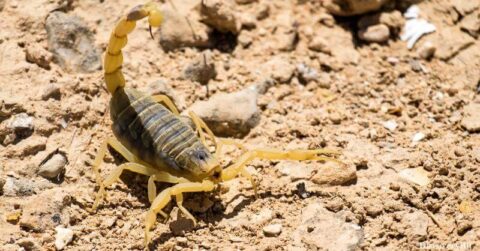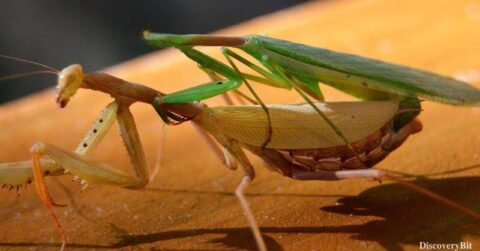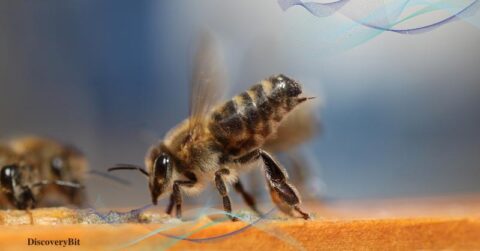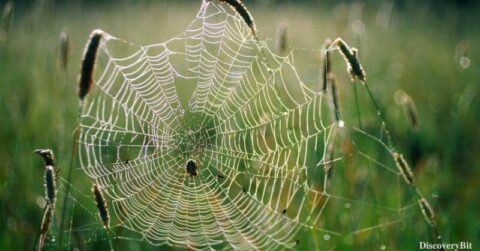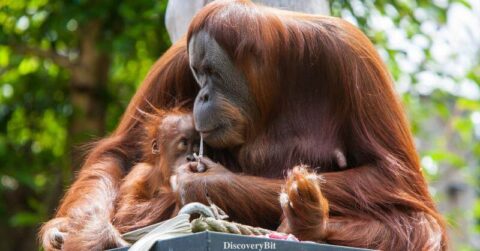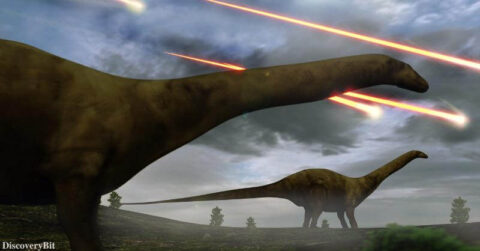Let’s get off our high horse, as the idea that humans are the only creatures capable of intelligence and empathy has been debunked in the fascinating world of non-human intelligence. Numerous research studies have indicated a countless number of smart animals in the animal kingdom, challenging our long-held assumptions.
In the 19th century, a German teacher named Wilhelm von Osten tried to teach his horse, Clever Hans, mathematics. Initially, it seemed that the horse was able to solve mathematical problems, which was quite surprising. However, later, a psychologist by the name of Oskar Pfungst discovered that Clever Hans was actually responding to subtle cues and not actually performing any complex calculations.
The study of Clever Hans, despite its limitations, sparked a curiosity that led to groundbreaking discoveries. It revealed that animals not only have the ability to count, but also engage in mathematical tasks.
We invite you to join us in exploring a list of 60 intelligent animals that defy conventional wisdom and showcase their extraordinary cognitive abilities. Let’s unravel the mysteries of the non-human animal mind where intelligence knows no bounds.
1) Dolphins: Masters of the Seas
 Dolphins, regarded among the world’s smartest animals, exhibit remarkable intelligence and social behaviors. They form tight-knit pods with intricate communication using clicks and whistles, possibly even having individual names. Dolphins showcase tool use, for example, by employing sponges for protection during foraging.
Dolphins, regarded among the world’s smartest animals, exhibit remarkable intelligence and social behaviors. They form tight-knit pods with intricate communication using clicks and whistles, possibly even having individual names. Dolphins showcase tool use, for example, by employing sponges for protection during foraging.
Their large brains, second only to humans in encephalization quotient (a measure of relative brain size), contribute to problem-solving skills and self-awareness, demonstrated through mirror recognition. Dolphins, playful and curious, engage in acrobatics and games, which fosters social bonds.
These smart animals display cultural learning, passing down hunting techniques and vocalizations through generations. Dolphins, also known for positive interactions with humans, participate in therapy programs and have aided individuals in distress at sea.
2) Elephants: Majestic Memory Holders

Elephants are considered one of the smartest animals in the world, displaying remarkable problem-solving skills and tool usage. They possess an extraordinary memory that allows them to navigate complex routes and water sources while fostering deep social bonds.
Beyond their cognitive abilities, elephants exhibit remarkable cooperation, altruism, and self-recognition, which underscore their brilliance in the animal kingdom. Their emotional intelligence shines through empathy and mourning rituals, as well as complex communication, including vocalizations and body language
Elephants have been found to possess exceptional abilities that often surprise us. One such example is Koshik the Asian Elephant, who has defied expectations by mimicking human speech. Koshik has been able to vocalize five Korean words since 2004, which were discovered by handlers. Although studies have suggested that Koshik’s comprehension is limited, trainers believe that this unique skill arose from Koshik’s loneliness. Koshik was separated from other elephants when he was only five years old.
3) Chimpanzees: Our Closest Cousins
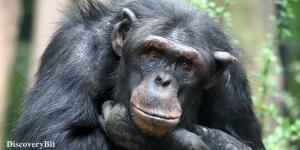 Chimpanzees, our closest relatives, are fascinating creatures due to their remarkable intelligence. These primates share over 98% of our DNA, which could be why they demonstrate remarkable traits.
Chimpanzees, our closest relatives, are fascinating creatures due to their remarkable intelligence. These primates share over 98% of our DNA, which could be why they demonstrate remarkable traits.
For instance, they are skillful at using tools, such as sticks for extracting insects, and they communicate with each other through vocalizations and gestures. All of these abilities showcase their cognitive prowess and make them truly remarkable creatures.
Chimpanzees are highly intelligent creatures that exhibit empathy and cooperation in complex social structures. They are known for their ability to console distressed companions and demonstrate self-awareness through mirror tests.
Chimpanzees also possess advanced cognitive abilities such as memory, problem-solving skills, and abstract thought. Their diverse tool use within groups suggests cultural learning, which further emphasizes their intelligence. Overall, studying chimpanzees can provide valuable insights into primate cognition.
4) Octopuses: Nature’s Master Of Disguise
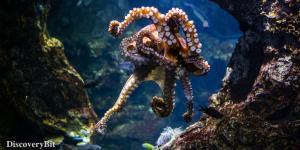 Octopuses are considered among the smartest animals in the world as they showcase extraordinary intelligence. They are also masters of disguise and can change color and texture for camouflage, using this ability for communication and defense. Octopuses demonstrate complex problem-solving, for eaxample, as they can navigate mazes, open jars for food, and exhibit tool use.
Octopuses are considered among the smartest animals in the world as they showcase extraordinary intelligence. They are also masters of disguise and can change color and texture for camouflage, using this ability for communication and defense. Octopuses demonstrate complex problem-solving, for eaxample, as they can navigate mazes, open jars for food, and exhibit tool use.
These smart creatures are fast learners and can adapt quickly to new environments, demonstrating impressive cognitive flexibility. Even in captivity, they have shown remarkable abilities to escape and manipulate their surroundings. Octopuses are known for their exceptional short and long-term memories, and they also communicate through dynamic skin displays.
In summary, their sensory perception, exceptional problem-solving in the wild, and innovative tool use highlight their unique intelligence among invertebrates, making them truly captivating creatures.
5) Border Collies: Canine Cognition
 Border Collies are widely considered as one of the most intelligent dog breeds. They exhibit remarkable intelligence, quickly learn commands, and are highly trainable. They were originally bred as herding dogs, and their innate work ethic, stamina, and intuitive understanding of human emotions make them invaluable in various roles.
Border Collies are widely considered as one of the most intelligent dog breeds. They exhibit remarkable intelligence, quickly learn commands, and are highly trainable. They were originally bred as herding dogs, and their innate work ethic, stamina, and intuitive understanding of human emotions make them invaluable in various roles.
Border Collies have advanced memory and a keen sense of agility, which makes them excel in activities such as obedience, agility competitions, and search and rescue missions. Their adaptability, energetic nature, and strong communication skills further establish their reputation as not only loyal companions but also as highly intelligent and versatile working dogs.
6) Orca: Oceanic Geniuses
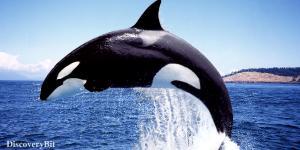
Orcas, also known as killer whales, are remarkable creatures that possess exceptional intelligence and complex social structures. They demonstrate their intelligence through their advanced hunting techniques, strategic manipulation of their prey, and unique communication skills that involve distinct vocalizations.
They have the ability to learn and transmit cultural behaviors across different pods and generations, which underscores their profound learning abilities. With their strong familial bonds and emotional depth, they showcase advanced cognitive and emotional intelligence that sets them apart from other oceanic creatures.
Recent studies reveal their unexpected ability to make complex, human-like speech sounds, challenging conventional ideas and affirming their position as remarkable oceanic intellectuals.
7) Rhesus Monkey: Clever Arboreal Communicators
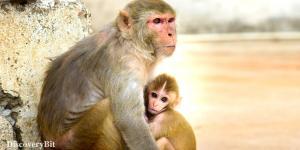 Rhesus Monkeys, in a 2007 Duke University study, showcased surprising mathematical prowess, scoring 76% on a number test, which nearly rivaled college students at 94%. These Asian natives are renowned for their social intelligence, and communication through facial expressions, and vocalizations in tight-knit groups, revealing their place among the world’s smartest animals.
Rhesus Monkeys, in a 2007 Duke University study, showcased surprising mathematical prowess, scoring 76% on a number test, which nearly rivaled college students at 94%. These Asian natives are renowned for their social intelligence, and communication through facial expressions, and vocalizations in tight-knit groups, revealing their place among the world’s smartest animals.
Rhesus Monkeys, masters of adaptability, can thrive in various environments, which demonstrates their problem-solving skills and tool usage. Beyond their agility in navigating habitats, these primates share genetic similarities with humans, contributing significantly to medical research.
Rhesus Monkeys are resilient, resourceful, and culturally significant, such that they offer a captivating glimpse into the complexities of the animal kingdom.
8) Cheetahs: Speedy Strategists
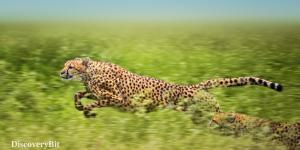 Cheetahs are renowned for their incredible speed, but they also exhibit surprising levels of intelligence. Their remarkable agility, capable of reaching 60-70 mph in just seconds, reflects advanced environmental assessment. As strategic hunters, they make use of stealth and collaboration within coalitions, thus showcasing planning and coordination abilities. Recent studies have challenged the common belief that cheetahs are solitary animals, instead highlighting the complex social structures they possess.
Cheetahs are renowned for their incredible speed, but they also exhibit surprising levels of intelligence. Their remarkable agility, capable of reaching 60-70 mph in just seconds, reflects advanced environmental assessment. As strategic hunters, they make use of stealth and collaboration within coalitions, thus showcasing planning and coordination abilities. Recent studies have challenged the common belief that cheetahs are solitary animals, instead highlighting the complex social structures they possess.
Cheetahs use vocalizations such as chirps and growls to communicate with each other, representing an advanced level of communication. They also demonstrate problem-solving skills in adapting to various hunting scenarios. In terms of parenting, cheetahs take great care in teaching their cubs, indicating a high level of cognitive depth.
Cheetahs’ adaptability to changing ecosystems, territorial awareness, and collaborative hunting styles underscore their position among the world’s smartest animals.
9) Snakes: Sly Problem-Solvers
 Snakes, which are often underestimated, display surprising intelligence. Their sophisticated hunting techniques involve stealth and precision strikes, showcasing their cognitive abilities. Studies suggest that they possess problem-solving skills, can navigate obstacles, and adapt based on experience. Their remarkable memory enables them to recognize familiar environments, predators, and prey. Certain species of snakes master camouflage and mimicry, highlighting their cognitive flexibility.
Snakes, which are often underestimated, display surprising intelligence. Their sophisticated hunting techniques involve stealth and precision strikes, showcasing their cognitive abilities. Studies suggest that they possess problem-solving skills, can navigate obstacles, and adapt based on experience. Their remarkable memory enables them to recognize familiar environments, predators, and prey. Certain species of snakes master camouflage and mimicry, highlighting their cognitive flexibility.
From constrictors to venomous snakes, their diverse hunting tactics reveal strategic approaches. Some snakes, like the boomslang, innovate by hanging from branches for prey. Their impressive spatial navigation and thermoregulation indicate awareness of their environment.
Some snakes, despite their solitary portrayal, exhibit parental care by guarding eggs or hatchlings. Cognitive depth is evident in anticipatory behaviors in feeding schedules, which places snakes among the world’s smartest animals.
10) Ravens: Feathered Architects
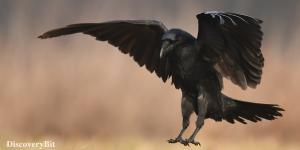 Ravens are known for their exceptional intelligence and advanced problem-solving skills. They are proficient tool users and demonstrate cognitive flexibility by creating tools to extract food. Ravens have a diverse range of vocalizations, including mimicry, which shows their communication complexity. They excel in group problem-solving, displaying social intelligence and cooperative behavior.
Ravens are known for their exceptional intelligence and advanced problem-solving skills. They are proficient tool users and demonstrate cognitive flexibility by creating tools to extract food. Ravens have a diverse range of vocalizations, including mimicry, which shows their communication complexity. They excel in group problem-solving, displaying social intelligence and cooperative behavior.
Their impressive memory and foresight contribute to their ability to plan. Ravens are playful by nature and engage in games that foster cognitive development. They show empathy by consoling distressed companions and sharing food, demonstrating a deep social understanding. With mirror self-recognition and cultural learning, ravens stand out as remarkably intelligent and adaptable birds.
11) Bonobos: Peaceful Prodigies
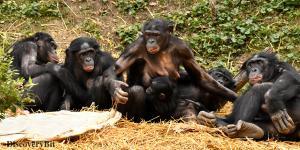
Bonobos are highly intelligent animals and have exceptional social dynamics. They communicate with each other through vocalizations and gestures, which showcases their advanced communication skills.
They are also famous for their peaceful and empathetic nature, as they resolve conflicts through sharing and empathy. Bonobos use tools and demonstrate adaptability and problem-solving skills by, for example, using sticks for various tasks. Additionally, they display cultural learning by passing knowledge from one generation to another, which fosters diversity.
Their subtle communication skills, along with high levels of empathy, result in harmonious group dynamics. Bonobos exhibit rich cognitive and emotional complexity, as seen in their self-awareness in mirror tests and playful behaviors. Their innovative tool use further emphasizes their intelligence, confirming their status as some of the smartest animals in the animal kingdom.
12) Jellyfish: Oceanic Pulsating Puzzles
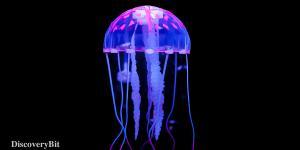 Jellyfish are ancient ocean wanderers that have been around for 500 million years. They have fascinating features that defy conventional intelligence. For instance, they use bioluminescent displays for intricate communication purposes.
Jellyfish are ancient ocean wanderers that have been around for 500 million years. They have fascinating features that defy conventional intelligence. For instance, they use bioluminescent displays for intricate communication purposes.
Despite not having a centralized brain, their decentralized nerve net enables them to exhibit subtle responses. By mastering bell pulsations, they showcase sophisticated swimming techniques. In addition, jellyfish have neurotoxic tentacles that they use to exhibit predatory intelligence.
Jellyfish adaptability is a trait that emerges in response to changes in the environment, and it also displays a form of problem-solving. In addition, their unique reproductive strategies emphasize evolutionary flexibility. Jellyfish serve as environmental indicators, signaling changes in ocean health. Some species of jellyfish boast longevity and regeneration, showcasing exceptional biological adaptability. Jellyfish, thriving all over the world, challenge traditional notions of intelligence, embodying marine resilience.
13) Penguins: Antarctic Tacticians
 Penguins are often admired for their cute and charming looks, but they are much more than just adorable creatures. They live in complex social communities and display cooperative behaviors and sophisticated vocalizations, which demonstrate their advanced social intelligence. Interestingly, certain types of penguins also exhibit remarkable problem-solving abilities, enabling them to adapt to different environments with cognitive flexibility.
Penguins are often admired for their cute and charming looks, but they are much more than just adorable creatures. They live in complex social communities and display cooperative behaviors and sophisticated vocalizations, which demonstrate their advanced social intelligence. Interestingly, certain types of penguins also exhibit remarkable problem-solving abilities, enabling them to adapt to different environments with cognitive flexibility.
Tool use, for example, utilizing rocks for courtship rituals, highlights their innovative capabilities. Penguins excel in parental care, with both partners actively participating in nurturing offspring. Adaptability is showcased as penguins navigate extreme climates and embark on long-distance migrations, revealing innate directional skills. In addition to their distinctive black and white appearance, penguins are also highly intelligent and exhibit impressive cognitive abilities.
14) Bees: Hive Mind Wonders
 Bees are celebrated for their collective brilliance, which they exhibit through their intricate hives. These social insects communicate with each other through intricate dance, conveying precise information about food sources. It is remarkable that bees also demonstrate numerical competence, and even understand the concept of zero – a skill that was once considered exclusive to humans.
Bees are celebrated for their collective brilliance, which they exhibit through their intricate hives. These social insects communicate with each other through intricate dance, conveying precise information about food sources. It is remarkable that bees also demonstrate numerical competence, and even understand the concept of zero – a skill that was once considered exclusive to humans.
Their problem-solving abilities become apparent in navigating complex environments and optimizing foraging routes. They have a remarkable long-term memory, as they are able to recall flower locations and efficient flight paths. Beyond their pollination duties, bees reveal a remarkable collective intellect, challenging our perceptions of them as some of the world’s smartest creatures. They intricately contribute to the interconnected complexity of the natural world.
Bees, in a surprising twist, are not only famous for vital roles in survival but also for counting and performing mathematical tricks. A study by the State University of New York revealed their numerical acumen, showing that bees count landmarks during their journeys. If a landmark changes, they face difficulties finding their way back—a testament to the mathematical intricacies within the seemingly simple yet astonishingly intelligent world of bees.
15) Cephalopods: Inking Brilliance
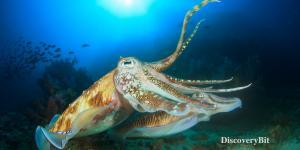 Cephalopods, which include octopuses, cuttlefish, and squid, are known for their impressive intelligence. They are masters of problem-solving, able to navigate mazes and use tools with ease. These marine creatures are also skilled at camouflage, quickly changing their color and texture to aid in hunting and communication. Cephalopods have short-term memory and can learn by observing their surroundings, making them highly adaptable to new environments.
Cephalopods, which include octopuses, cuttlefish, and squid, are known for their impressive intelligence. They are masters of problem-solving, able to navigate mazes and use tools with ease. These marine creatures are also skilled at camouflage, quickly changing their color and texture to aid in hunting and communication. Cephalopods have short-term memory and can learn by observing their surroundings, making them highly adaptable to new environments.
Their communication involves complex displays that use changes in color and body movements. Octopuses, in particular, are known for their ability to escape from enclosures and mimic other creatures.
Cephalopods are playful by nature, and they engage in activities for skill development. In captivity, they solve puzzles and showcase remarkable adaptability. Cephalopods stand as extraordinary examples of marine intelligence
16) Dogs: Human Companions with Cognitive Gifts
 Dogs are known for their intelligence and display captivating traits. They are highly skilled problem-solvers, with breeds like Border Collies that excel in complex tasks. Their emotional intelligence is reflected in their loyalty and ability to recognize and respond to human emotions.
Dogs are known for their intelligence and display captivating traits. They are highly skilled problem-solvers, with breeds like Border Collies that excel in complex tasks. Their emotional intelligence is reflected in their loyalty and ability to recognize and respond to human emotions.
Dogs communicate through barks, body language, and trained cues, which is particularly helpful in their roles as service dogs. They learn by observation, which enhances their adaptability, and have a robust memory that enables them to retain routines and recognize familiar faces.
Dogs showcase exceptional cognitive abilities through playful problem-solving, which enriches their mental stimulation. Specialized breeds possess diverse talents, such as law enforcement work for German Shepherds and scent detection for Bloodhounds. Dogs are highly trainable and can serve as guide dogs, therapy companions, and skilled assistance partners, reflecting their intelligence and versatility.
17) Ants: Communal Intelligence
 Ants are some of the most intelligent animals in the world, yet they are often overlooked. Collectively, they weigh more than all humans and form superorganisms with advanced communication abilities through pheromones.
Ants are some of the most intelligent animals in the world, yet they are often overlooked. Collectively, they weigh more than all humans and form superorganisms with advanced communication abilities through pheromones.
Some ants exhibit “slave-making” behavior, which showcases their intricate societal structures. Their strength is remarkable, as they can lift objects 50 times their weight, and they possess two stomachs to facilitate cooperative feeding, highlighting their exceptional adaptability.
Ants exhibit remarkable intelligence, similar to computer systems. They operate as a collective network, functioning in predetermined ways. Surprisingly, research has shown that ants possess some level of mathematical skills, allowing them to calculate the shortest routes, much like a GPS system. This unexpected ability, based on Fermat’s principle of least time, places ants among the world’s most intelligent creatures.
18) Cows: Intelligent Grazers
 Cows are often underestimated when it comes to their intelligence. They have a complex social structure and form close relationships with emotional bonds, which is evident in their nuanced communication system.
Cows are often underestimated when it comes to their intelligence. They have a complex social structure and form close relationships with emotional bonds, which is evident in their nuanced communication system.
They also possess problem-solving skills and cognitive flexibility that enable them to adapt to new situations. Cows have remarkable memory that helps them recognize individuals and locations over time. They are emotionally sensitive and experience a range of emotions such as joy, distress, and empathy, and they even mourn lost companions.
Curiosity drives cows to explore, which helps them adapt to diverse environments. They learn from their peers, which enhances their problem-solving abilities. Maternal instincts foster deep bonds, and their spatial awareness aids in navigation. Cows also exhibit innovative behaviors, such as tool use, which highlights their intelligence and challenges preconceived notions about their abilities.
19) Squirrels: Nutty Geniuses of Adaptability
 Squirrels are not just backyard acrobats, they also display impressive intelligence. They are experts in problem-solving, navigating complex environments, and adapting to changes. Their remarkable memory skills aid in efficient food caching for survival. Some even use tools, showcasing their resourcefulness. Tail movements serve as a sophisticated communication system, conveying messages from danger to social interactions.
Squirrels are not just backyard acrobats, they also display impressive intelligence. They are experts in problem-solving, navigating complex environments, and adapting to changes. Their remarkable memory skills aid in efficient food caching for survival. Some even use tools, showcasing their resourcefulness. Tail movements serve as a sophisticated communication system, conveying messages from danger to social interactions.
In preparation for the future, squirrels create caches during times of abundance. Even in urban areas, squirrels can adapt and navigate human landscapes while assessing risks. During mating, they exhibit courtship rituals and display social behavior. Scientific studies have highlighted the spatial memory prowess of squirrels in navigating obstacle courses. Squirrels are revealed as intelligent and adaptable marvels of the animal kingdom.
20) Crows: Feathered Architects of Tools
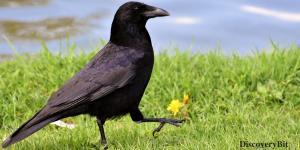 Crows are considered to be one of the most intelligent animals on earth. They are known for their remarkable problem-solving and tool-using abilities. They can create hooks from twigs to extract insects and other prey, which showcases their extraordinary intelligence.
Crows are considered to be one of the most intelligent animals on earth. They are known for their remarkable problem-solving and tool-using abilities. They can create hooks from twigs to extract insects and other prey, which showcases their extraordinary intelligence.
Crows are capable of holding grudges and recognizing faces, which suggests that they possess emotional depth. In their social groups, complex communication is prevalent, which puts them on the list of smart animals.
These birds have amazed researchers with their ability to recognize numbers and shapes with 75% accuracy, exhibiting human-like neurons as they master self-recognition in mirrors. Crows have proven to be the world’s smartest animals, and their intricate minds continue to captivate scientists who are fascinated by the mysteries within them.
21) Seals: Aquatic Intelligence

Seals, often underestimated in intelligence, showcase surprising cognitive prowess, earning them a spot among the world’s smartest animals. These marine marvels exhibit advanced problem-solving skills, navigating dynamic oceanic environments with ease. Remarkable memory guides seals during vast migrations, recognizing individual companions along the way.
Their communication is intricate, featuring a diverse range of vocalizations and body movements. Seals form tight-knit colonies, revealing remarkable social intelligence and cooperative hunting strategies. Even in captivity, seals demonstrate an ability to learn and respond to human cues, emphasizing their adaptive and intelligent nature. Hoover, a talking seal with a Bostonian accent, adds a captivating touch to the extraordinary cognitive abilities of these oceanic wonders.
22) Spiders: Web Architects Spiders
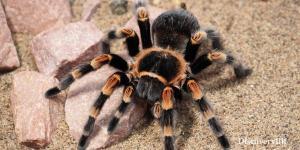 Spiders, often misunderstood, reveal fascinating intelligence. Their ability to construct intricate webs showcases sophisticated engineering skills and problem-solving capabilities.
Spiders, often misunderstood, reveal fascinating intelligence. Their ability to construct intricate webs showcases sophisticated engineering skills and problem-solving capabilities.
Complex hunting techniques, such as crafting webs strategically to capture prey, highlight predatory intelligence. Some spider species exhibit social behaviors and communication within colonies, emphasizing a form of social intelligence.
Observations suggest memory retention in navigating and maintaining their webs. Spider silk, known for its strength and versatility, reflects a deep understanding of material science. Despite their small size, spiders display a unique set of cognitive abilities, positioning them as architects and hunters in the intricate world of arachnids.
23) Pigeons: Urban Navigators
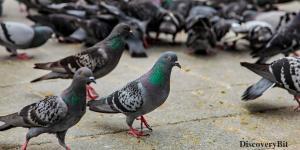 Discover the urban intelligence of pigeons, underestimated city dwellers with cognitive abilities rivaling the world’s smartest animals. Often dismissed, these birds reveal fascinating traits, recognizing themselves in mirrors—an ability shared with dolphins and apes.
Discover the urban intelligence of pigeons, underestimated city dwellers with cognitive abilities rivaling the world’s smartest animals. Often dismissed, these birds reveal fascinating traits, recognizing themselves in mirrors—an ability shared with dolphins and apes.
Renowned for exceptional navigation, homing pigeons cover 1,000-mile journeys, playing vital roles in World War II message delivery. Contrary to misconceptions, they display impressive memory, recalling spatial locations for extended periods and proving adept problem solvers and learners in studies, where after a year of training, pigeons learned abstract rules, pecking images from lower to higher numbers.
Pigeons, ingrained in human history, demonstrate a blend of adaptability and intelligence, challenging stereotypes and earning their place among Earth’s smartest creatures.
Tags: Animals Animals that can do math Math most intelligent creatures Nature problem solving smart animals smart animals list smartest animal on earth the world's smartest animal


